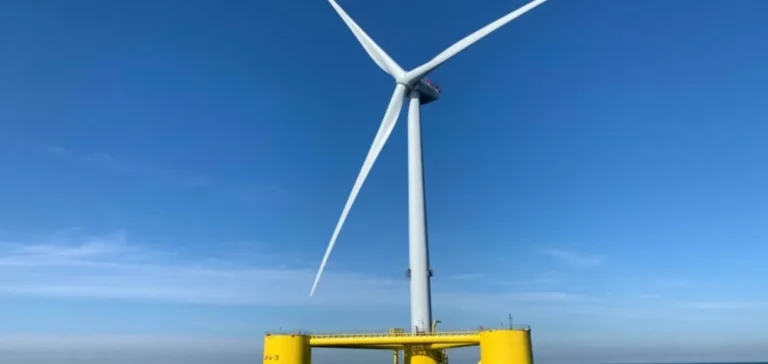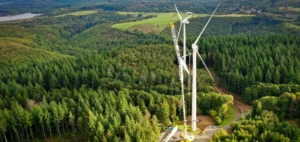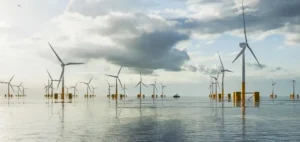Pennavel and BrestPort have signed a cooperation agreement to organise future industrial phases of the planned commercial floating wind farm off the coast of South Brittany. The protocol formalises a series of discussions initiated in 2021, aimed at structuring the logistical and technical operations required for the park’s construction, with industrial activity expected in 2030 and 2031.
A structured regional industrial ambition
Pennavel, a joint venture between Elicio France and BayWa r.e. France, was selected in May 2024 to develop France’s first commercial floating wind farm. With an estimated capacity of 250 to 270 megawatts, the project aims to supply over 450,000 residents annually. In this context, BrestPort, manager of the port of Brest, is seen as a central logistical actor to host the construction and assembly of the floating platforms.
Pennavel stated that its industrial strategy relies on a strong regional base, involving mobilisation of local supply chains and enhancing the local economic fabric. The signed partnership aims to define the technical and commercial conditions required to carry out these operations from the port of Brest.
InFloW programme supports major projects
To meet the demands of the Pennavel project, BrestPort is rolling out an investment programme called InFloW (INnovation For FLOating Wind), focused on upgrading the marine renewable energy terminal (EMR). This programme, running from 2029 to 2033, includes technical adaptations tailored to the needs of floating wind, such as quay upgrades and heavy-lift infrastructure.
Already integrated into the Trans-European Transport Network (TEN-T), the port of Brest positions itself as a multimodal logistics platform. It also offers complementary industrial capabilities, including ship repair and a dedicated EMR area on its polder. According to BrestPort’s management, this infrastructure should enable the port to capture a growing share of maritime energy transition operations.
A confirmed long-term positioning
The new 40-year concession contract signed by BrestPort in 2024 explicitly includes energy-related port activities. This direction enables the port to consolidate its role in upcoming large-scale industrial operations, particularly those linked to offshore floating projects. The discussions with Pennavel reflect a long-term strategy to stabilise logistics flows related to the construction of marine infrastructure.
Pennavel anticipates an advanced preparation phase by the end of the decade in order to meet the 2032 commissioning target. The ongoing dialogue between both parties aims to finalise potential contractual terms for operations to be carried out in Brest, potentially covering commitments on volumes, timelines, and industrial delivery conditions.






















